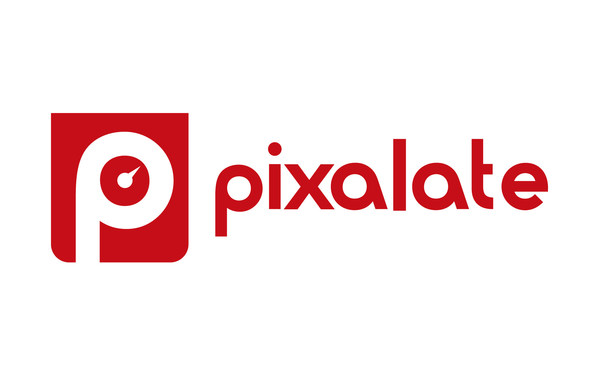Pixalate Releases Industry-First SCO Verification Report Q2 2023 in Collaboration with Basis Technologies: 65% Higher Ad Fraud Rate on Misrepresented Supply Chain Objects
Thu, 05 Oct 2023 20:00:00 +0800
 |
Analysis of the OpenRTB Supply Chain Object (SCO) finds that 19% of open programmatic ad traffic contains misrepresented supply paths
LONDON, Oct. 5, 2023 /PRNewswire/ -- Pixalate, the market-leading privacy, compliance, and fraud protection analytics platform for Connected TV (CTV) and Mobile Advertising, today released the Q2 2023 Supply Chain Object Verification Report. The analysis contains insights from Pixalate's OpenRTB SCO validation process, which examines supply paths across CTV, mobile apps, desktop, and mobile web, and measures Invalid Traffic (IVT) rates, inclusive of ad fraud, across all the supply paths analyzed.
Pixalate's SCO validation process evaluates whether the supply path legitimately originated from a publisher and whether that publisher has a direct relationship with the first seller in the supply chain. Pixalate utilizes IAB Tech Lab's ads.txt and sellers.json standards, along with SCO data from the OpenRTB bid stream, to perform this validation.
Key Findings:
- 65% higher IVT rate in supply paths inaccurately marked as "complete".
- 19% of traffic with a Supply Chain Object (SCO) did not pass Pixalate's SCO validation.
- 71% of traffic with SCO had unique paths, while 7% of traffic had 3 or more redundant paths, showing opportunities for optimization.
- 26% of SCOs with 3 nodes fail validation, while shorter chains are more likely to be marked as "incomplete" in Q2 2023.
"As Pixalate's Supply Chain Verification Report substantiates, the transparency that the SCO can achieve is of great value to the programmatic ecosystem. Supply path optimization (SPO), or the process of evaluating supply chain object, at its core, supports mutually beneficial auction dynamics," said Chris Hallenbeck, Senior Director, Marketplace Quality at OpenX. "Where there's lack of transparency, there's a greater propensity for fraud and a greater likelihood of invalid traffic. This is why partnering with SSPs that have an established track record of championing a fair and transparent value carries so much benefit. "
"As per our supply quality policy, sellers who we believe are intentionally misrepresenting or withholding supply chain information, or repeatedly fail to maintain accurate records are banned. Our approach is based on the hypothesis that lack of transparency only benefits the bad actors," said Ayse Pamuk, Manager, Platform Operations at Basis Technologies. "The findings in Pixalate's Report indicating elevated IVT rates on supply paths that are either marked incomplete or inaccurately represented as complete confirms our hypothesis."
"IAB Tech Lab's suite of transparency initiatives including SCO, ads.txt, sellers.json have given the advertising industry the tools to understand the complex supply chains currently in the industry," said Amit Shetty, VP of Product, at Pixalate. "Pixalate has taken advantage of this transparency to truly understand the quality of the supply chain, including rooting out likely weak links in the chain."
To download the Q2 2023 Supply Chain Object (SCO) Verification Report, click here.
About Pixalate
Pixalate is the market-leading fraud protection, privacy, and compliance analytics platform for Connected TV (CTV) and Mobile Advertising. We work 24/7 to guard your reputation and grow your media value. Pixalate offers the only system of coordinated solutions across display, app, video, and CTV for better detection and elimination of ad fraud. Pixalate is an MRC-accredited service for the detection and filtration of sophisticated invalid traffic (SIVT) across desktop and mobile web, mobile in-app, and CTV advertising.
Disclaimer
The content of this press release, and the Supply Chain Object Verification Report (the "Report"), reflect Pixalate's opinions with respect to factors that Pixalate believes can be useful to the digital media industry. Pixalate's opinions are just that, opinions, which means that they are neither facts nor guarantees. Pixalate is sharing this data not to impugn the standing or reputation of any entity, person or app, but, instead, to report findings and trends pertaining to programmatic advertising activity in the time period studied. Per the Media Rating Council (MRC), "'Invalid Traffic' is defined generally as traffic that does not meet certain ad serving quality or completeness criteria, or otherwise does not represent legitimate ad traffic that should be included in measurement counts. Among the reasons why ad traffic may be deemed invalid is it is a result of non-human traffic (spiders, bots, etc.), or activity designed to produce fraudulent traffic." IVT is also sometimes referred to as "ad fraud." Per the MRC, "'Fraud' is not intended to represent fraud as defined in various laws, statutes and ordinances or as conventionally used in U.S. Court or other legal proceedings, but rather a custom definition strictly for advertising measurement purposes.'

 Homepage
Homepage